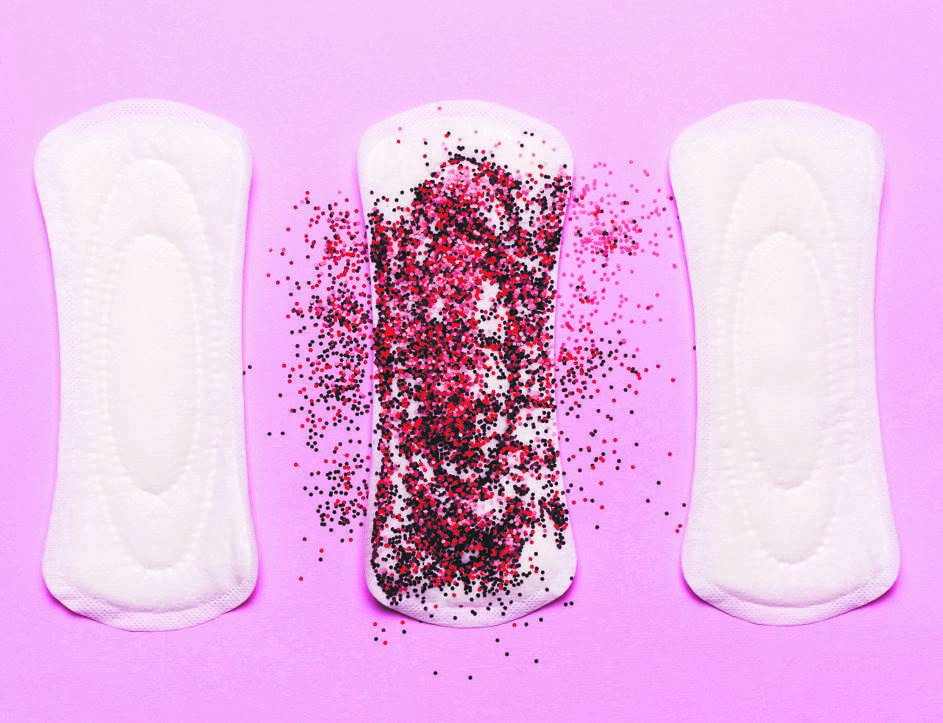
May 28 marked Menstrual Hygiene Day. And the irony of it is that those who are most affected by menstrual hygiene are not even aware of its existence. For the millions of women and girls who menstruate every day, it is business as usual and for some it means missing school or work, as either products or facilities to see them through this natural monthly process are either unavailable or unaffordable.
The subject of menstruation is one that is seen as a “women’s issue” and is shrouded in mystery and surrounded by myths. In some communities it is still believed that a woman on her period is filthy, that she cannot address a room full of men or go near livestock.
A menstruating woman is not experiencing some form of bodily malfunction. A menstruating woman cannot contaminate food or clothing. Nothing has been done to dispel these myths that are perpetuated in societies about menstruation.
Education and awareness efforts are crucial to destigmatise menstruation from a shameful private monthly occurrence to a normal monthly process that is part of a woman’s life.
Menstruation is the process by which the body eliminates the lining of the uterus of a woman who has not fallen pregnant. This is a 21-35 day cycle in the reproductive life span of a woman. Period! Menstruation starts at menarche, the age at which the body of a young girl signals its biological readiness to conceive.
A study in South Africa found this age to be between 12.3 years and 12.4 years (Jones et al, 2009). Women cease to menstruate at menopause, which age ranges between 49-52 years.
Menstruation forms part of the lives of girls and women for up to 40 years. It therefore cannot be ignored in conversations and policy decisions around the well-being of women. The menstrual health of women is a human rights issue and one, which if not appropriately managed, can be a very costly one too. The issue is so important that it is indirectly referred to in six of the United Nations Sustainable Development Goals:
- Goal 3: Good health and hygiene;
- Goal 4: Quality Education;
- Goal 5: Gender Equality;
- Goal 6: Clean water and sanitation;
- Goal 8: Decent work and economic growth; and
- Goal 12: Responsible consumption and production.
Apart from the self-explanatory goal three, one might wonder how the others are connected to menstrual hygiene. With regard to goal four, which deals with quality education, girls can miss up to five days of school a month due to menstruation. Sanitary products are expensive and often young girls from disadvantaged backgrounds cannot afford decent sanitary towels that guarantee protection and doesn’t erode their self-confidence during this time of the month. Even at tertiary level, a young woman from a disadvantaged background still faces the dilemma of being able to afford sanitary protection. Lack of safe sanitary products means that young girls and women resort to unhygienic methods of protection.
Another important consideration is that, at times due to dire economic situations, purchasing sanitary products often leads to a tradeoff between having food on the table and a dignified period. One packet of sanitary towels that retails for around R30 is the equivalent of two loaves of bread, leaving families with very little choice on what to prioritise. One packet can be insufficient for a young woman whose cycle runs for seven days.
Goal five, which deals with gender equality, is perhaps the most important of all the goals in relation to menstruation. The misconceptions that women constantly deal with in this regard consistently puts them on a lower footing than their male counterparts. In many work spaces, women are still described and often dismissed as emotional, and as making rash decisions “during that time of the month”. This puts them at a grave disadvantage because it seeks to say that there are certain times where women cannot perform optimally due to nature and it’s a phenomenon that serves to shut the door in the face of the progression of women.
Hopefully we will soon get to a point of talking about the menstrual health of women in the world and acknowledge their well-being during this monthly process as part of the overall health. It’s that important, period!
The issue of menstruating girls and young women is one that deserves much more attention than it has currently received. It’s not only pregnancy that keeps young girls out of school. A greater number of them miss important learning days due to menstruation and the national response to this crisis is non-existent. The only notable strides that have been taken is the provision of sanitary towels to disadvantaged schools and placing sanitary products on the Vat-free list. That is all the government has done and unfortunately it is not enough.
The government needs to get to the point of providing free sanitary protection to all girls at schools and tertiary. This will afford them an opportunity to uninterrupted education, which is of the utmost importance. An educated woman is an educated nation. Once again I repeat what has been said by other women elsewhere: sex is a choice, menstruation is not. If condoms can be provided free of charge, the same needs to be done for menstrual products for girls and young women.
Menstruation is a natural occurrence that should not continue to be an emotional and financial burden to women and families. Through improved education about it for both boys and men, girls and women and access to sanitary products for women, it will move from being a shameful secret to a dignified monthly process that does not interrupt the life and livelihood of any woman. Period!
• Nkomo is the chief executive officer of loveLife




 Publications
Publications
 Partners
Partners








